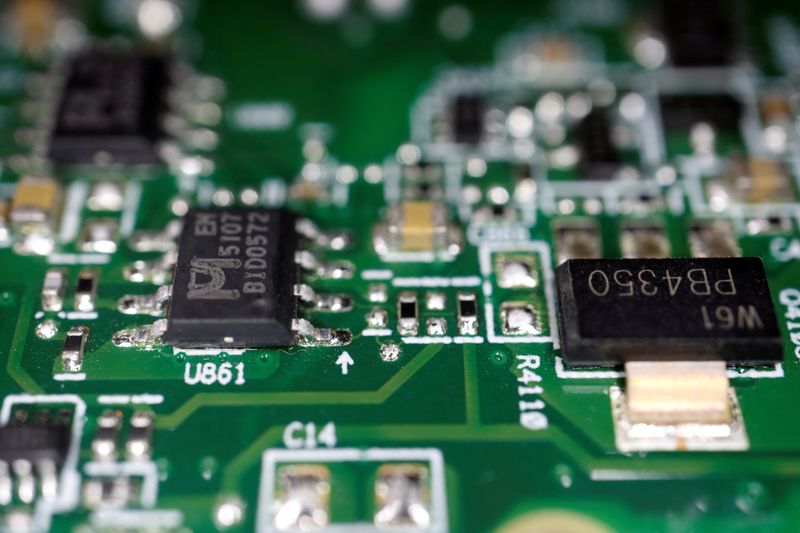Industry urges pragmatic EU Chips Act 2.0 to close gap with US and China
By Toby Sterling
AMSTERDAM (Reuters) -The European Union must incentivise investments by computer chip equipment, materials and design firms to ensure the bloc’s security and not lag further behind U.S. and Asian rivals, industry group SEMI Europe recommended on Tuesday.
The EU Commission had asked SEMI, which represents hundreds of European chip industry firms, for recommendations as it revises the 2023 Chips Act, which focused on attracting 43 billion euros of investment into chip facilities in Europe.
The U.S., China, South Korea, Taiwan and Japan have similar initiatives as the race for market share and need for supply chain security accelerates in the AI era.
Following pressure from national governments led by the Netherlands, the EU Commission is due to complete a review of the law in March, a half year ahead of schedule, and propose significant revisions in what has been dubbed Chips Act 2.0.
“It is important to build on Europe’s strong foundations with pragmatic reforms,” SEMI said.
Rather than focusing on attracting advanced manufacturing — such as a previous failed attempt to bring Intel (INTC) to Germany — funding must go to projects that will support European supply chains and build on existing strengths such as in equipment manufacturing, where Europe hosts firms such as ASML in the Netherlands.
That means letting go of the strict “first of a kind” criterion for state aid. Meanwhile, to speed up project approvals, the EU must designate a single point of contact for firms and governments and set itself a public timeline to approve or deny projects, SEMI said.
European governments in a Dutch-led coalition in October called on the EU to adopt a Chips Act 2.0 that prioritised “the semiconductor sector as a strategic industry on par with aerospace and defence and … if necessary use all the available instruments to protect it”.
In addition to investment tax breaks and project funding from member states, SEMI argues the EU should also have a budget of 20 billion euros ($23 billion) for chip projects, which would represent a quadrupling.
($1 = 0.8630 euros)
(Reporting by Toby Sterling; Editing by Alison Williams)



Leave a Comment
Your email address will not be published. Required fields are marked *